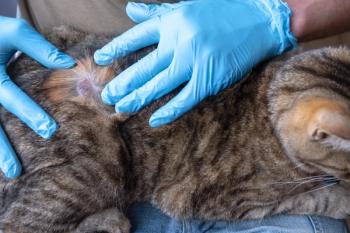
Sexism secures DVM's drive to own
Dr. Nancy Katz says she's never been to a job interview where the practice owner didn't ask, usually in a roundabout way, whether or not she planned to have kids.
Dr. Nancy Katz says she's never been to a job interview where the practice owner didn't ask, usually in a roundabout way, whether or not she planned to have kids.
The 36-year-old small animal veterinarian says although inquiring is illegal, she's had plenty of experience with what she calls "inherent sexism." It's one of the reasons Katz chose to brave ownership rather than a more lax career as an associate veterinarian.
Dr. Nancy Katz
"Whether it's subtle or more major, it's a question that's out there, and that's troubling to me," she says. "Anyone asking, by definition, is going to hold you back in a job. I find it interesting that my husband's never been asked that question."
Opportunities for women
Katz spent a few years doing relief work for various clinics in the New York City area before settling down in 2002 to open the Katz & Dogs Animal Hospital in Upper Montclair, N.J.
With more women graduating into veterinary medicine, Katz refuses to accept long-held beliefs that women are reluctant to take ownership roles. It's true that ownership is work-intensive, Katz says, but veterinary medicine provides plenty of prospects for women, unlike other professions.
"If a smart, driven woman wants to run a company, she'll find there's definitely a glass ceiling on Wall Street and within many companies," she says. "Veterinary medicine is a field where there's a large number of small businesses that provide great opportunity for women."
That opportunity comes with a price. Katz admits she works 70 hours to 75 hours a week.
"It's a lot, I know," she says. "I've never been this busy before, but I've never been this energized or happy."
Gender divide
Katz awards opportunities, too. Her practice, staffed entirely by women, sees by far more female clients than male clients.
That's a reflection of society, not her hiring practices, Katz says.
"I've only had one or two men apply here," she says. "I think a lot of women work in veterinary medicine because they have the compassion and the desire. As far as my clients go, I think people want to see a veterinarian more similar to their own demographic."
Newsletter
From exam room tips to practice management insights, get trusted veterinary news delivered straight to your inbox—subscribe to dvm360.





